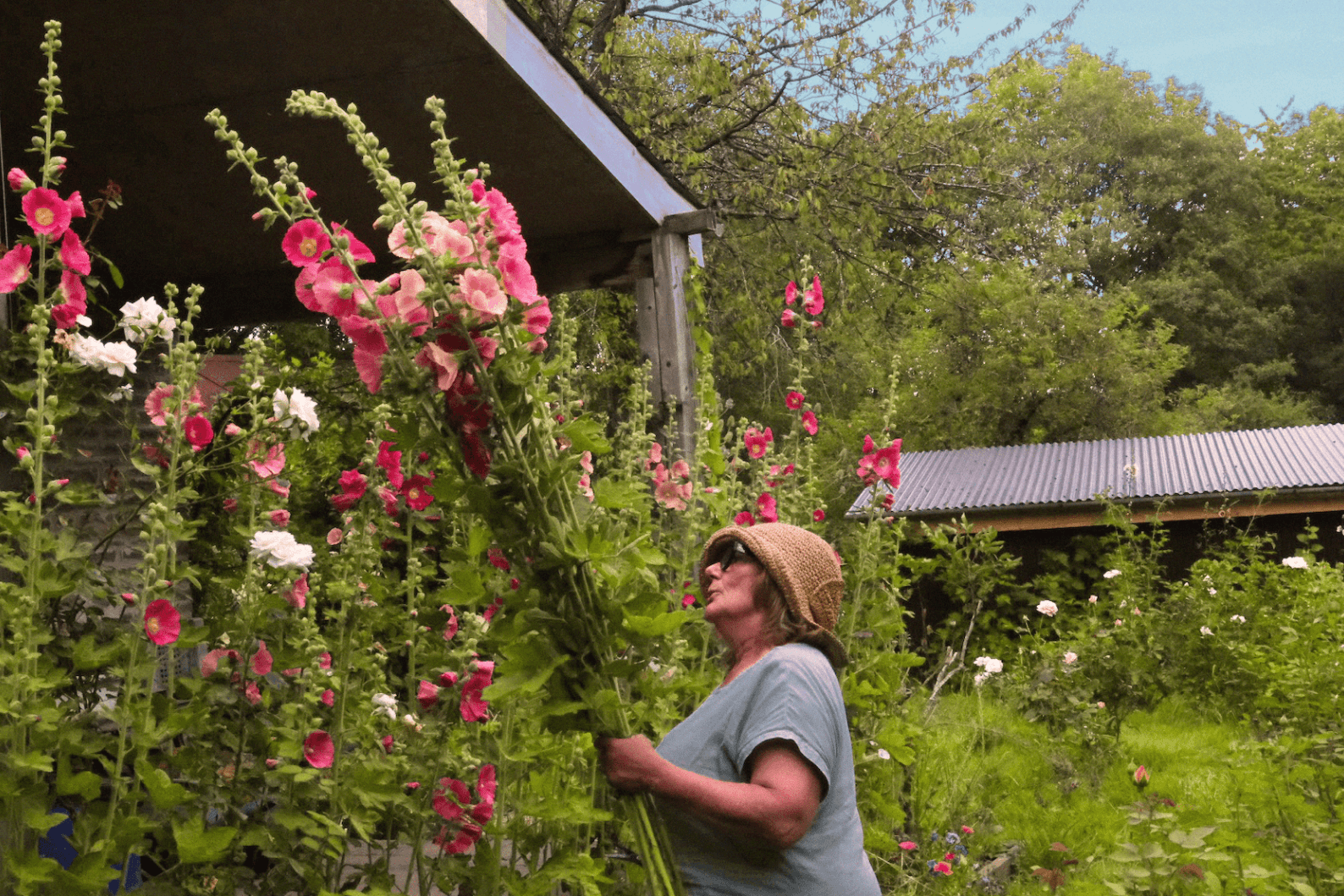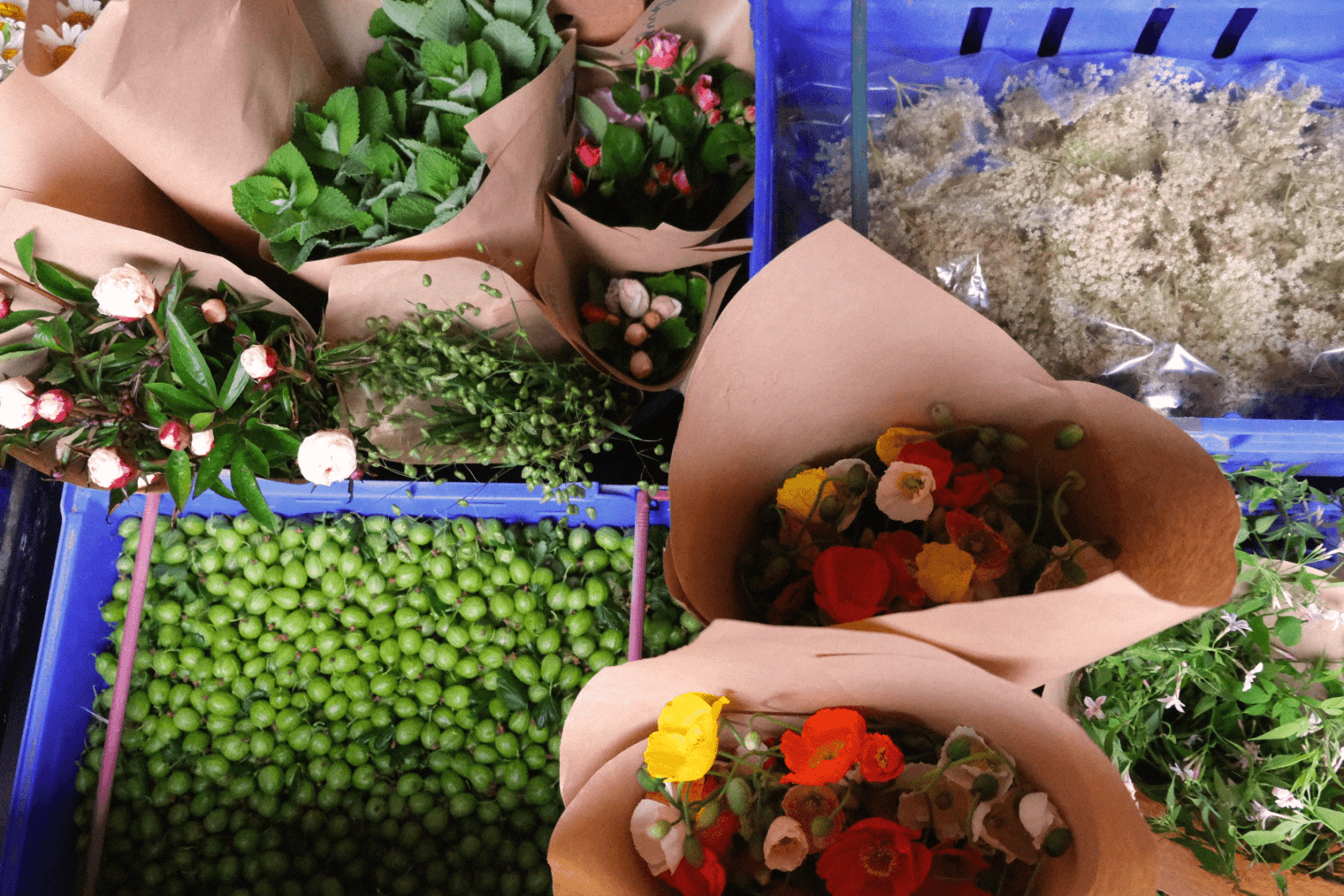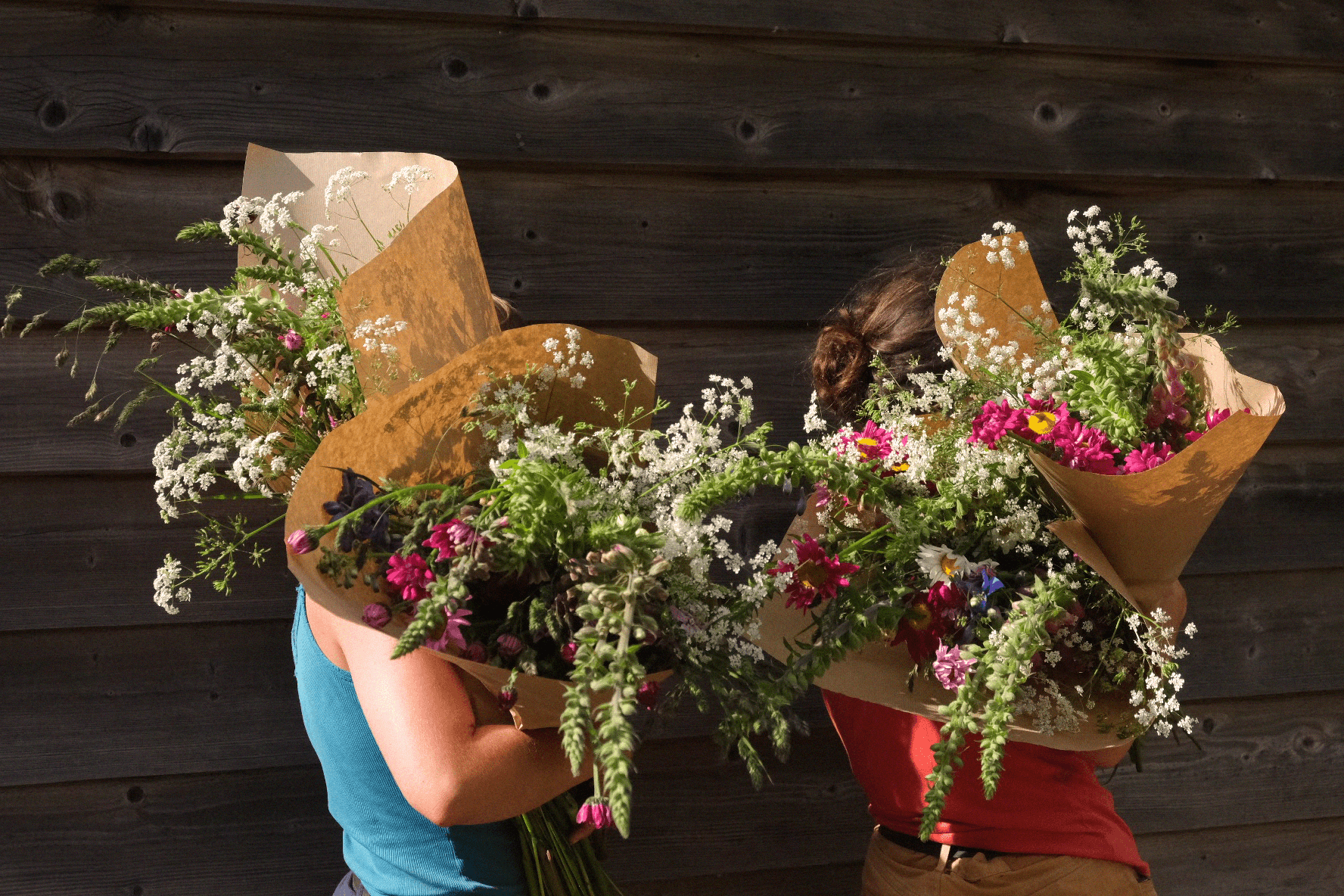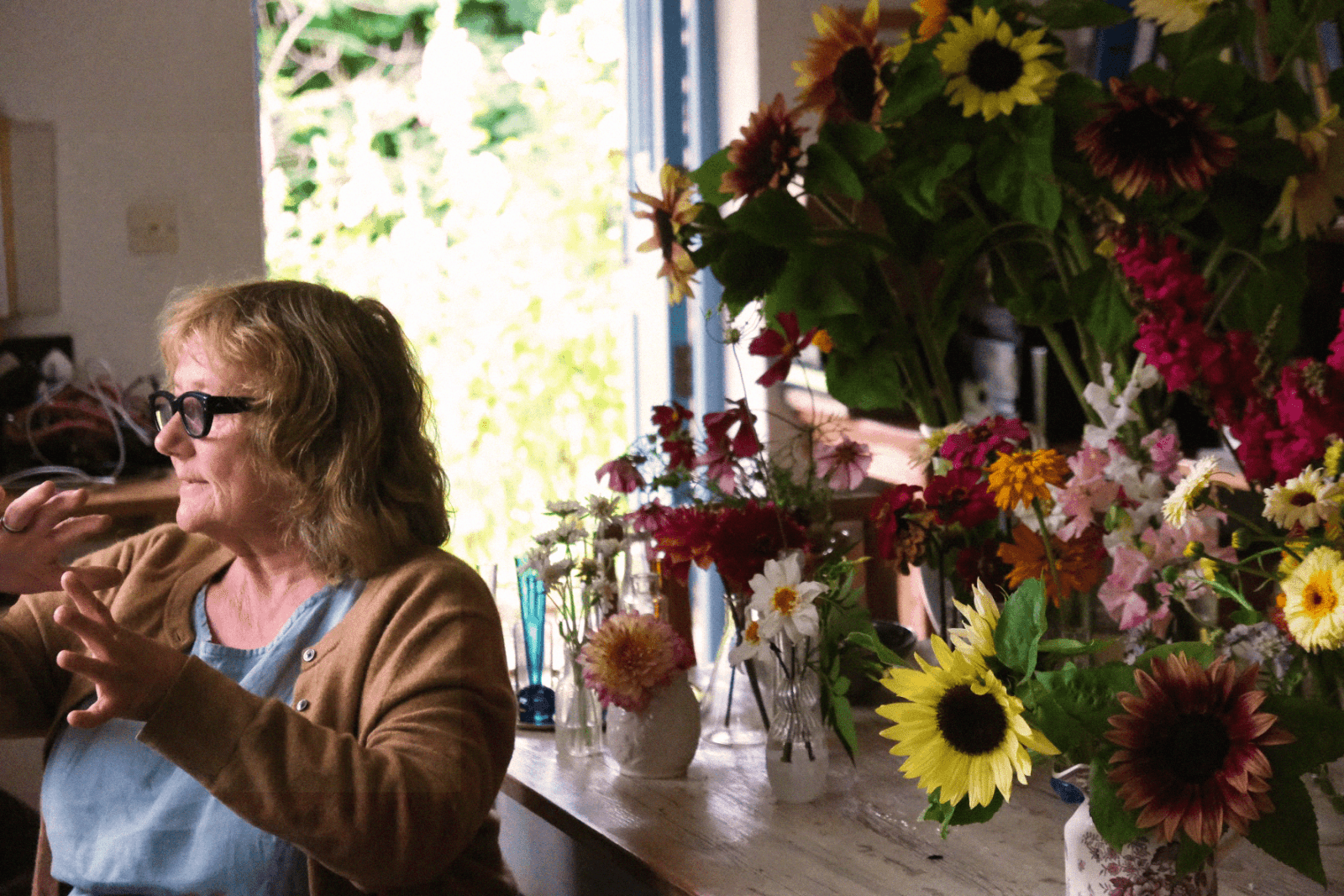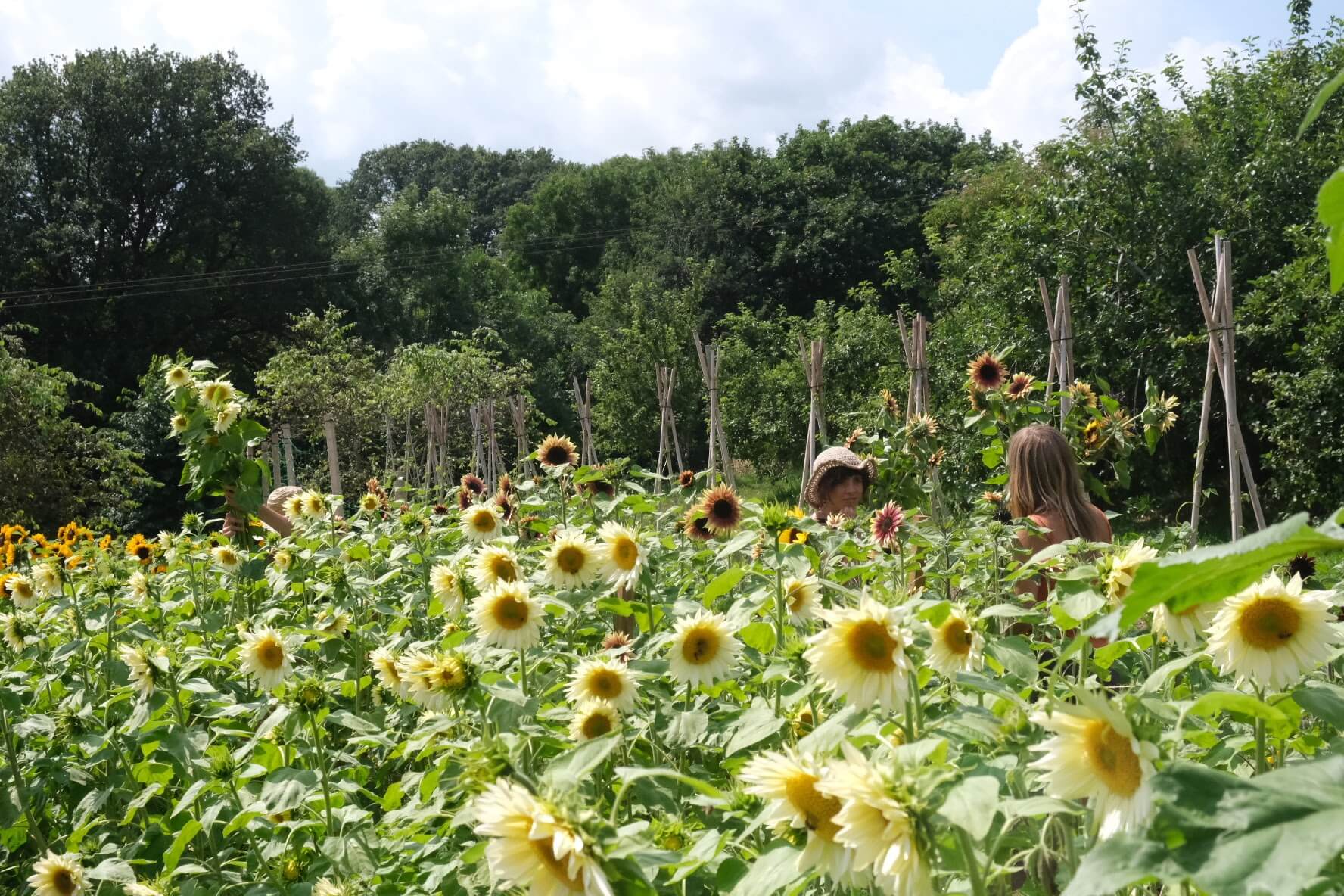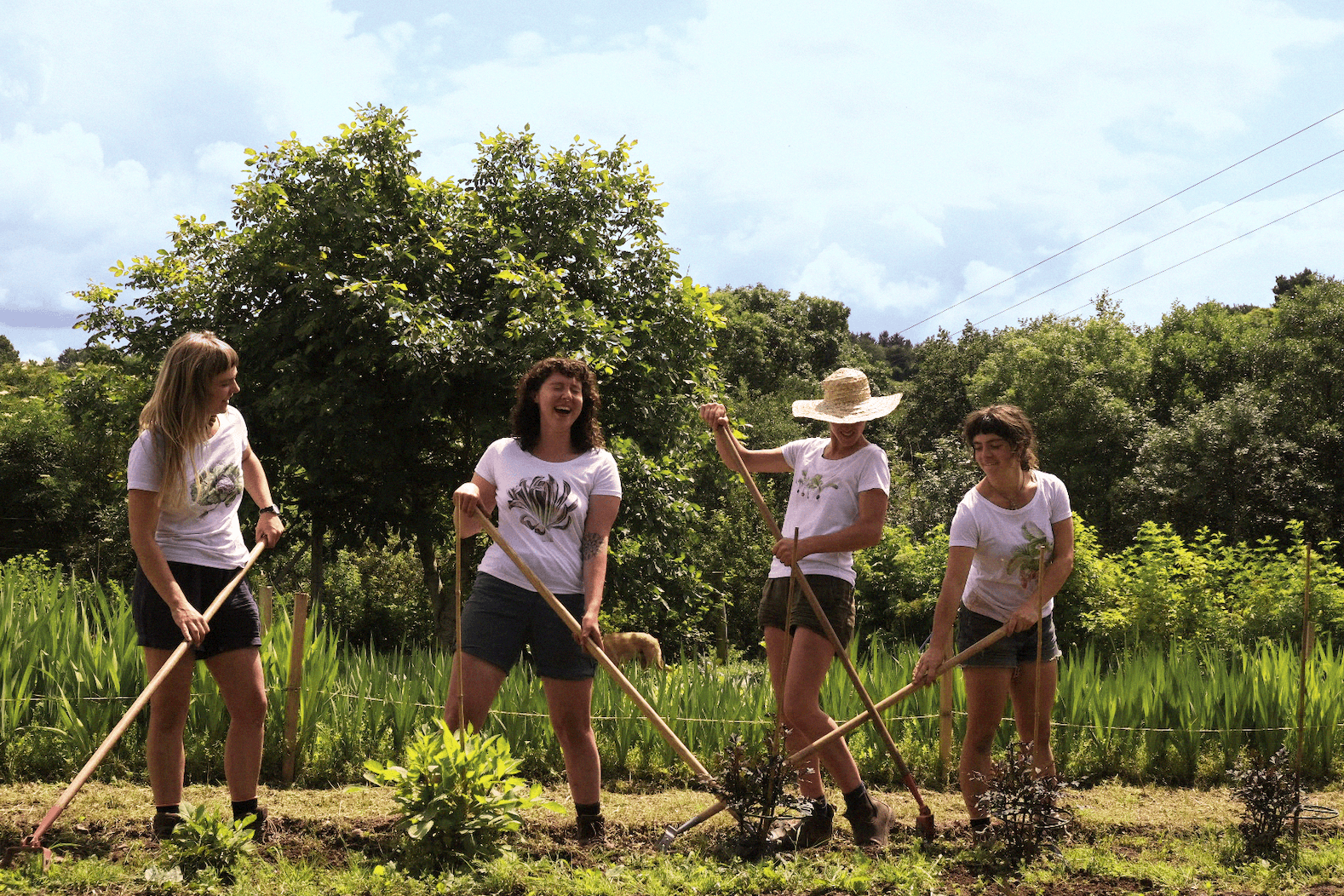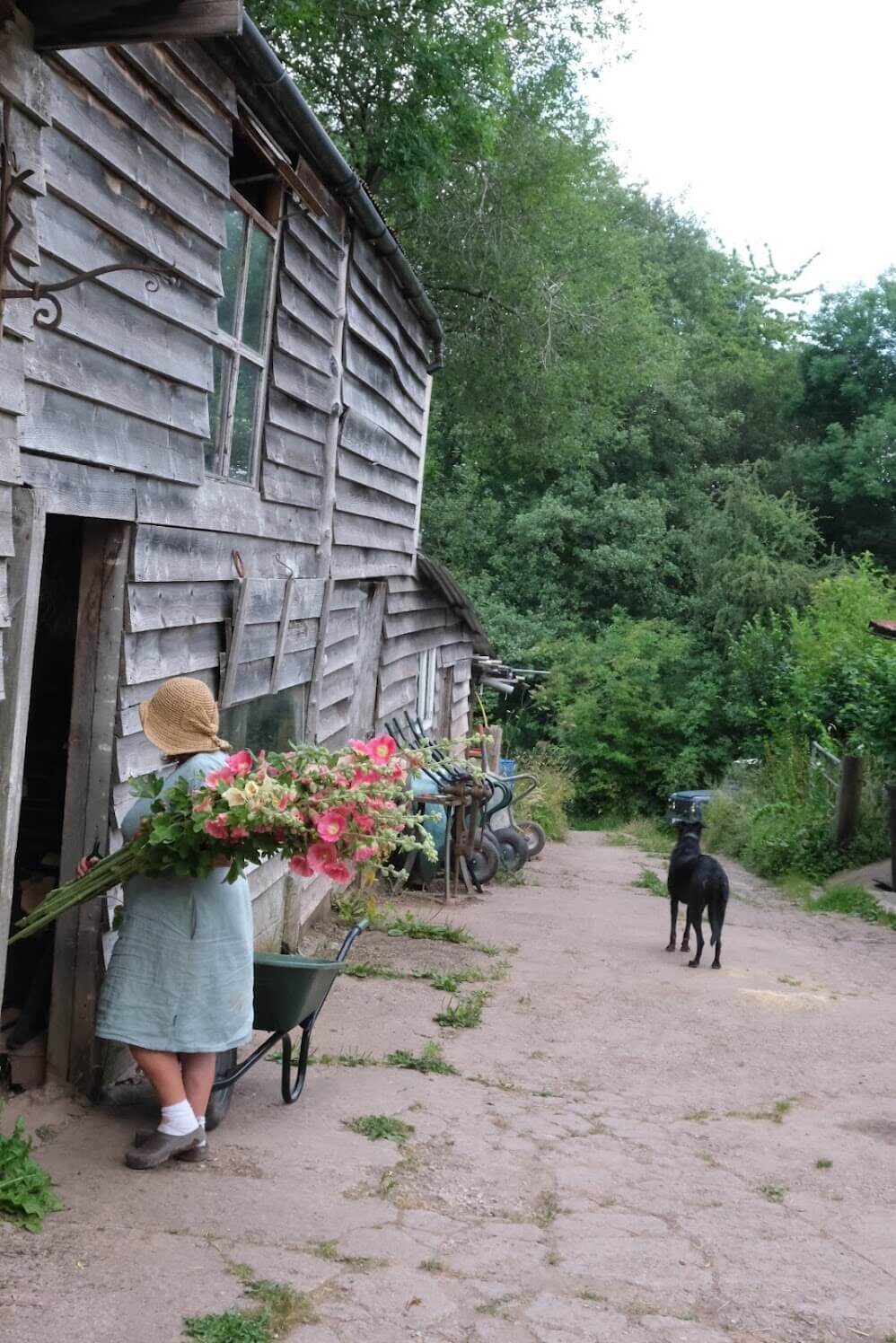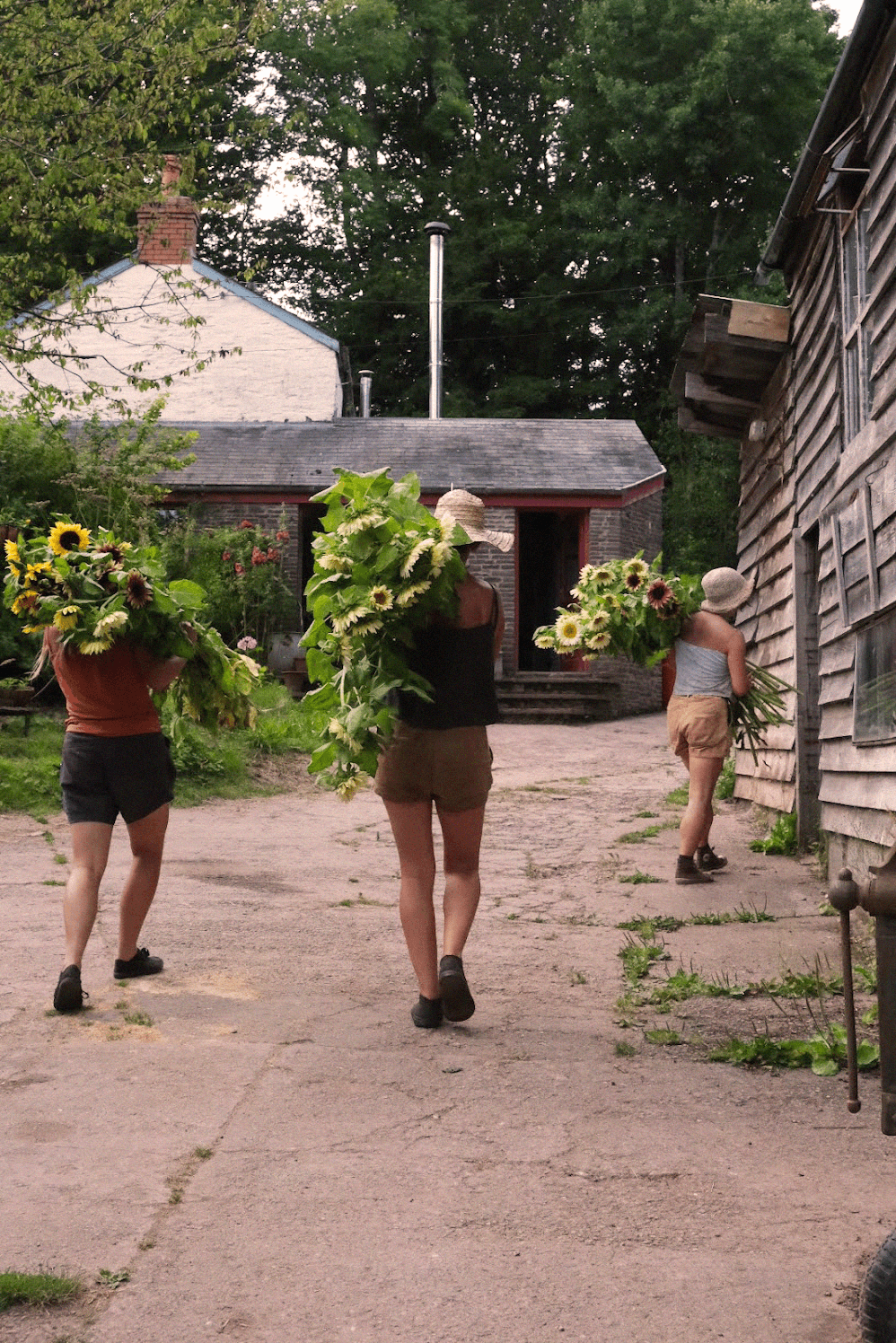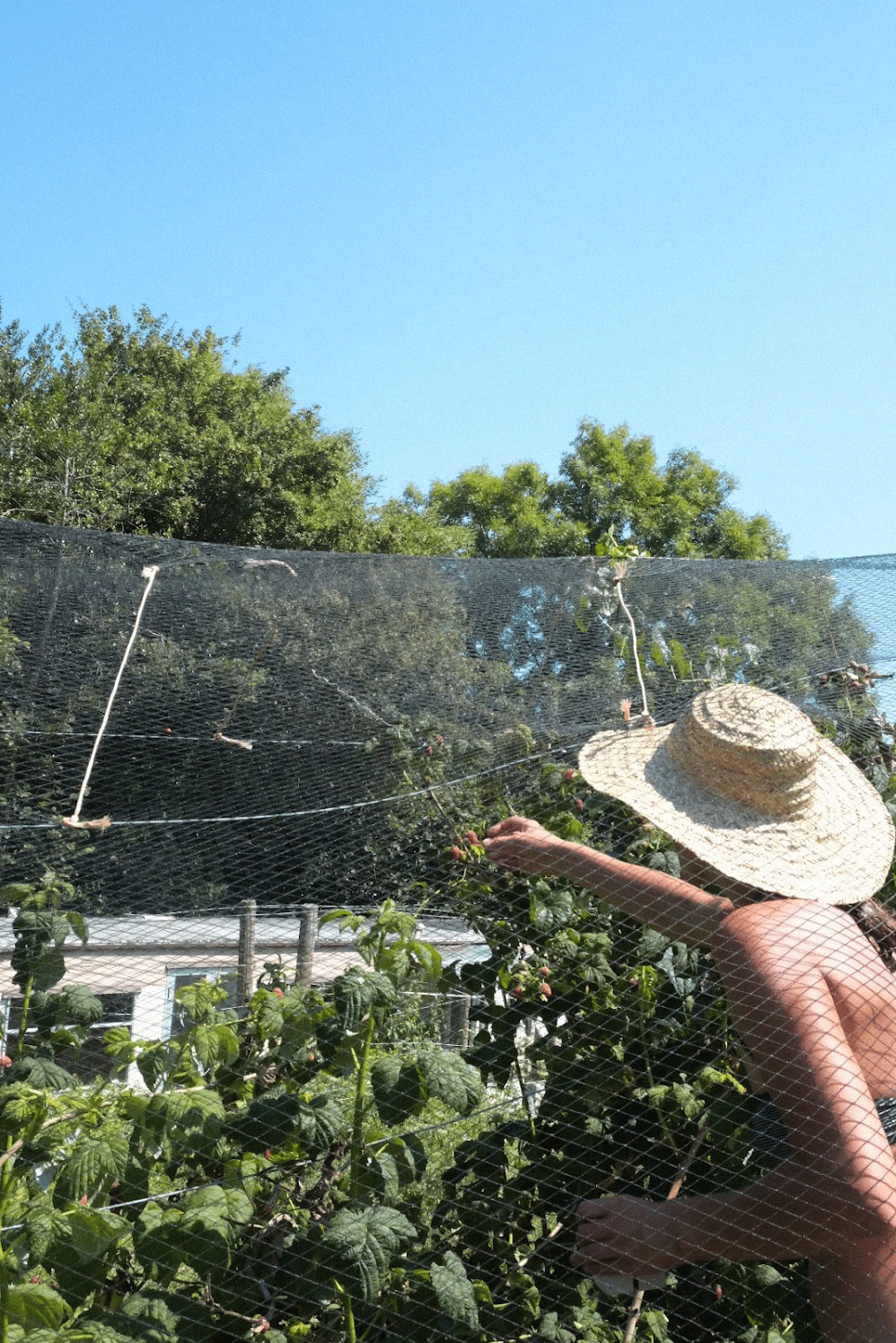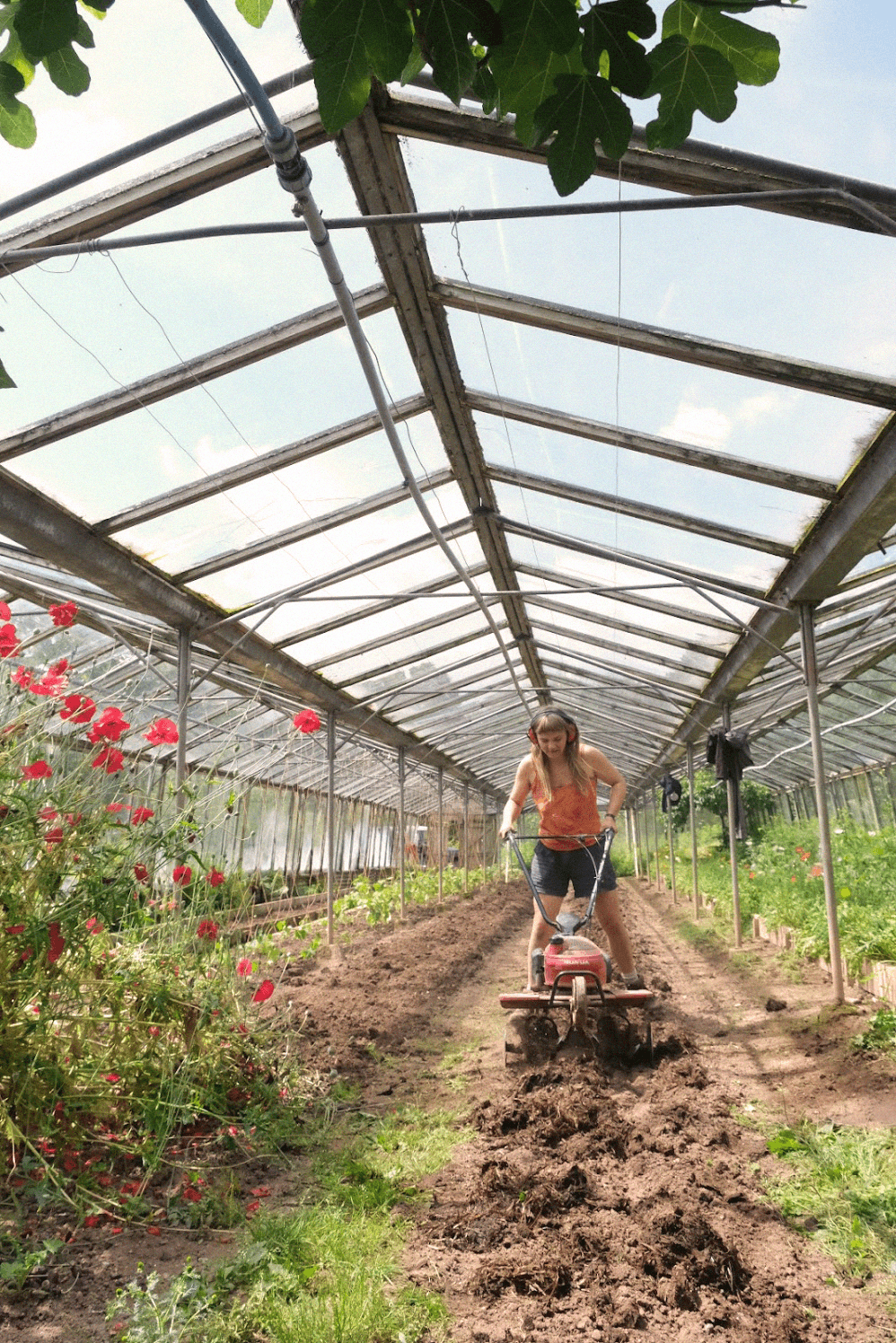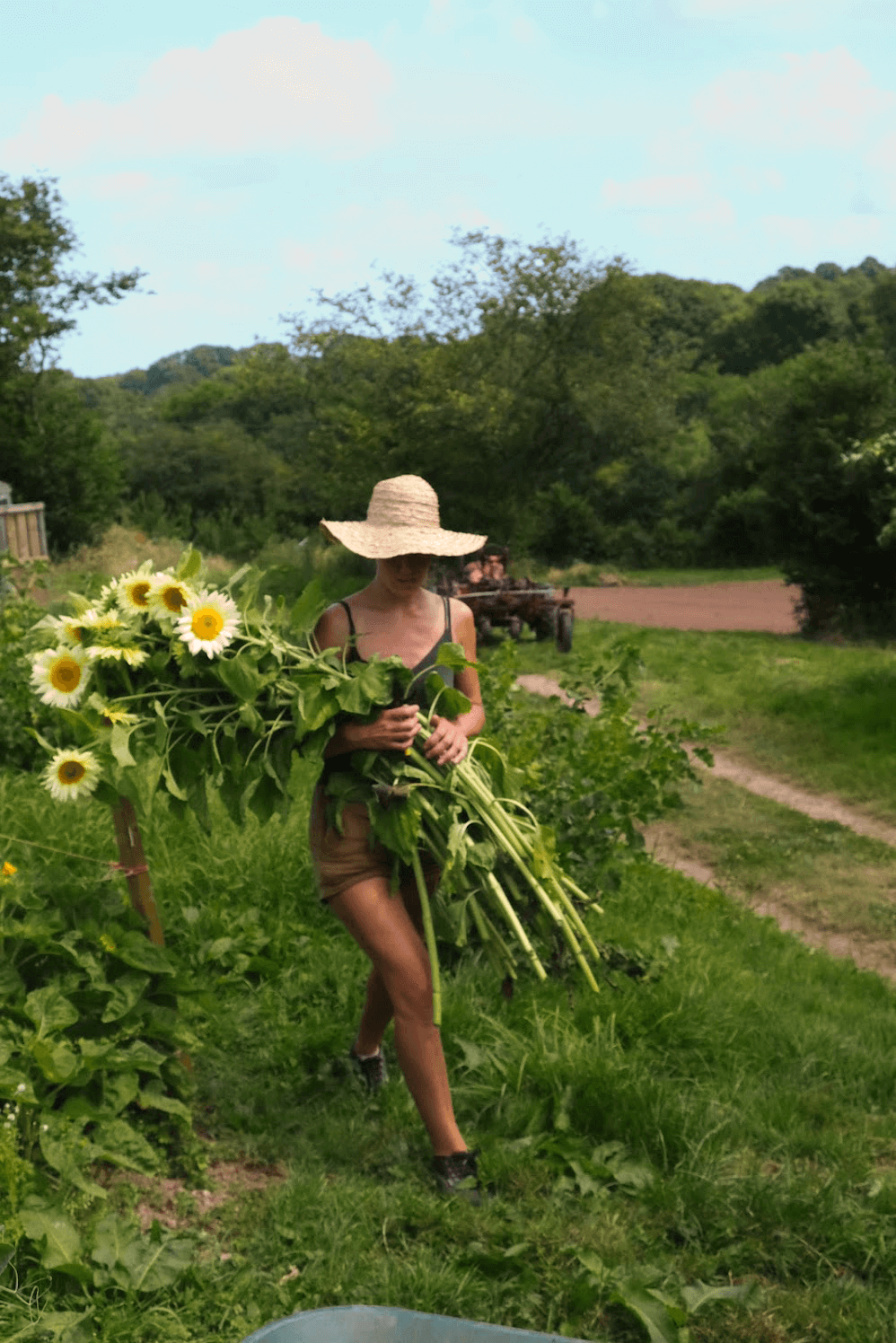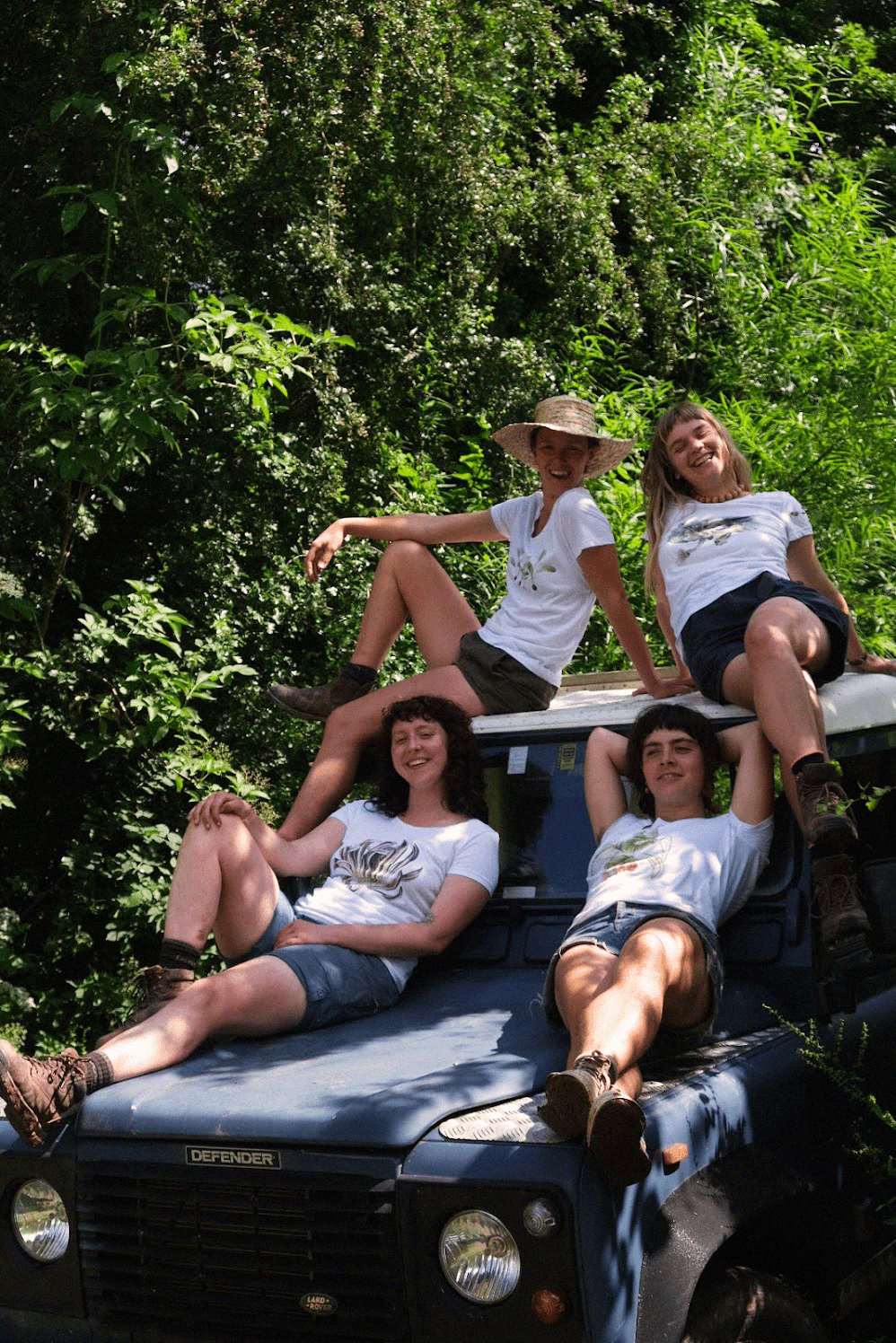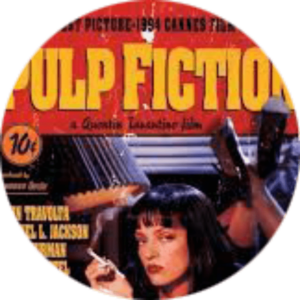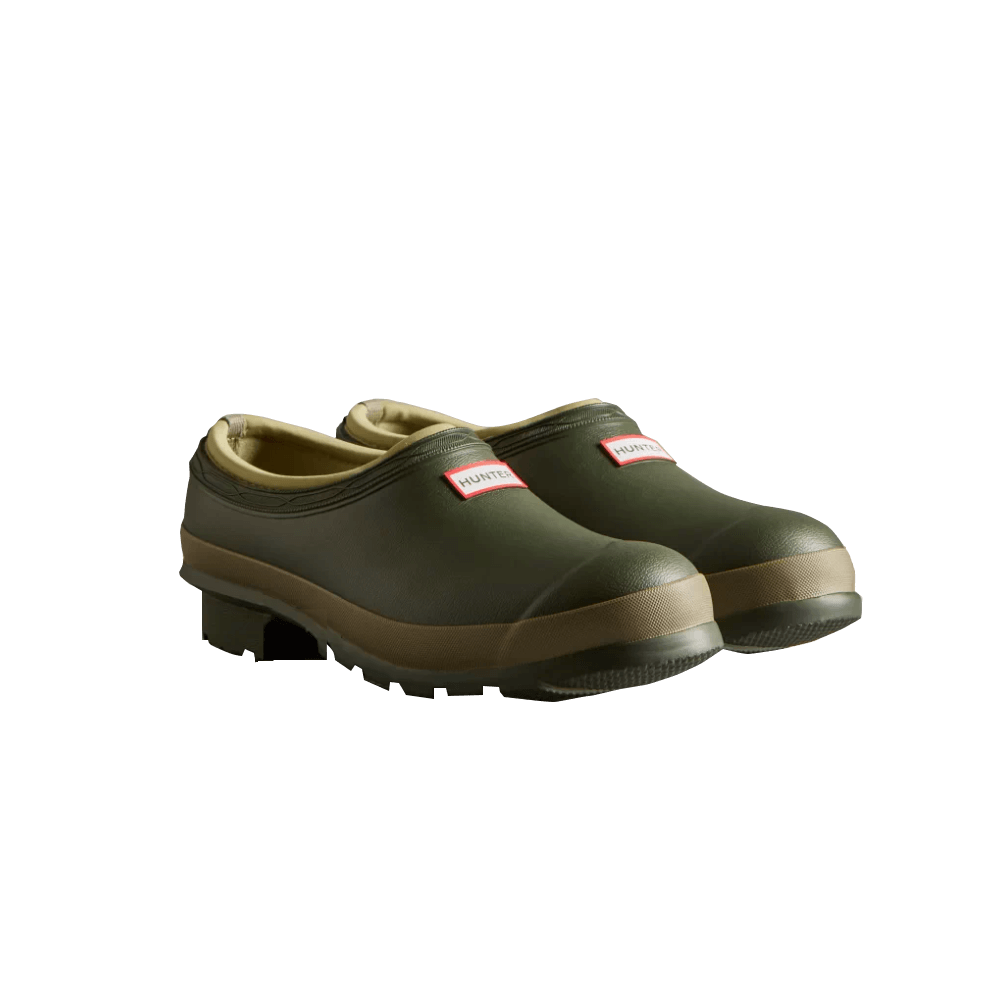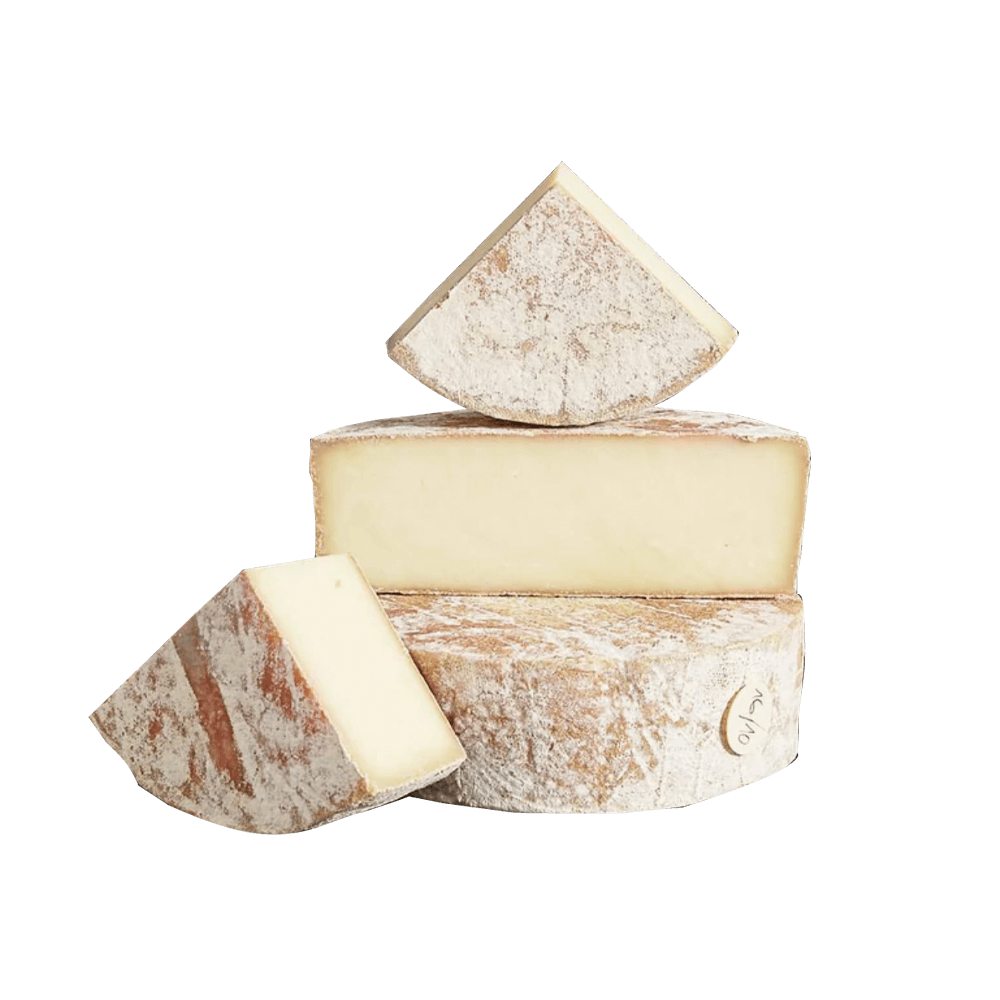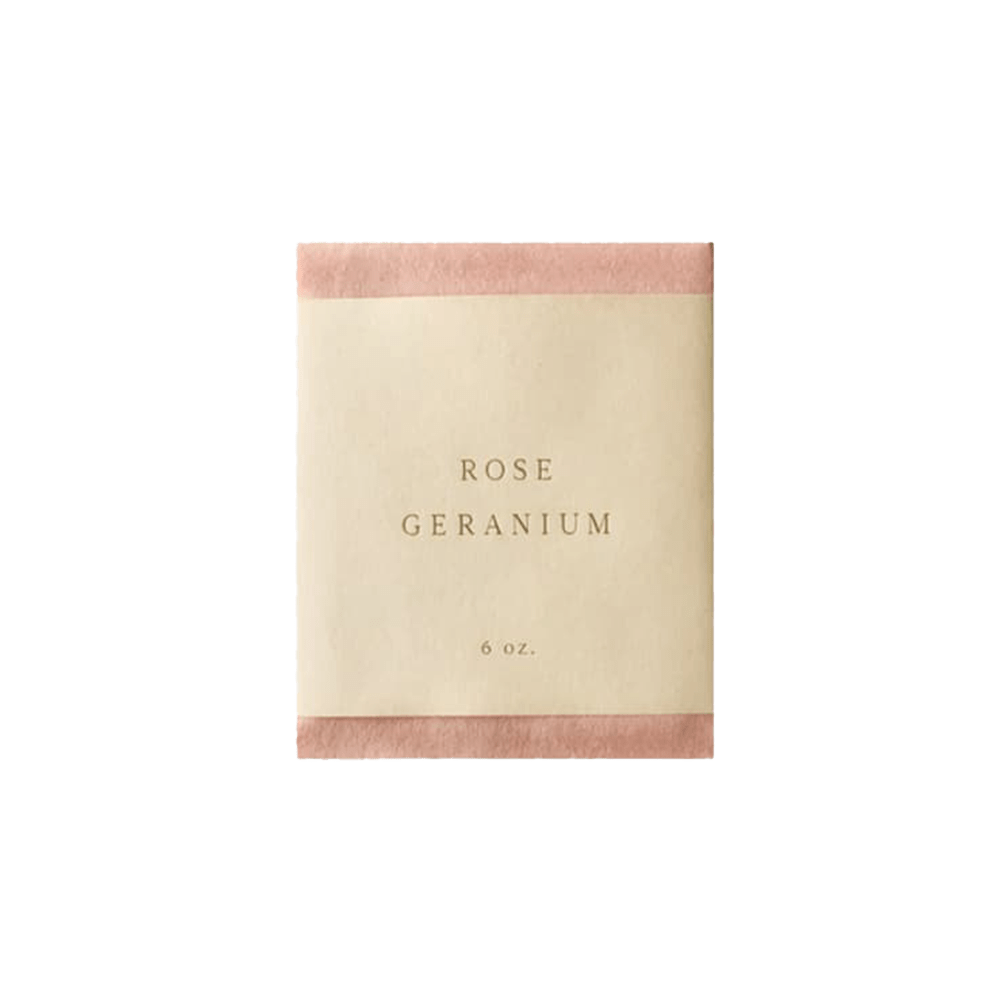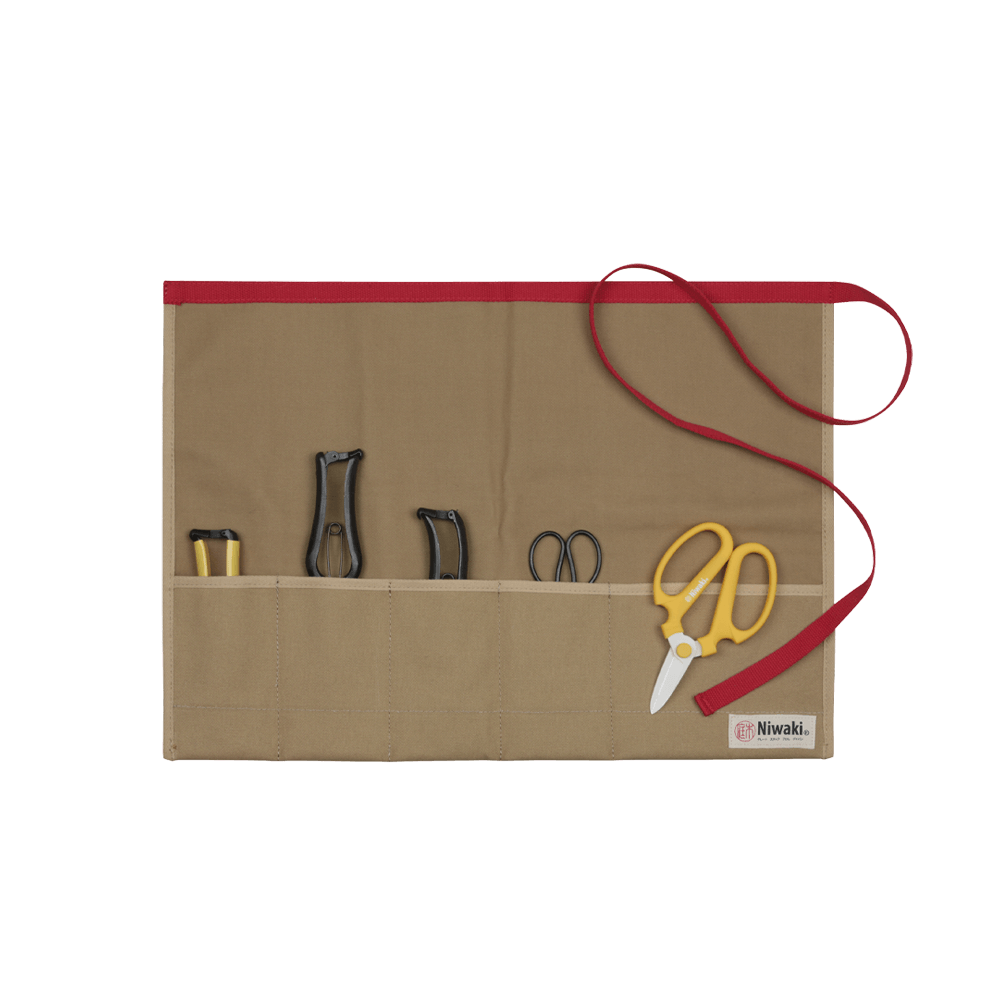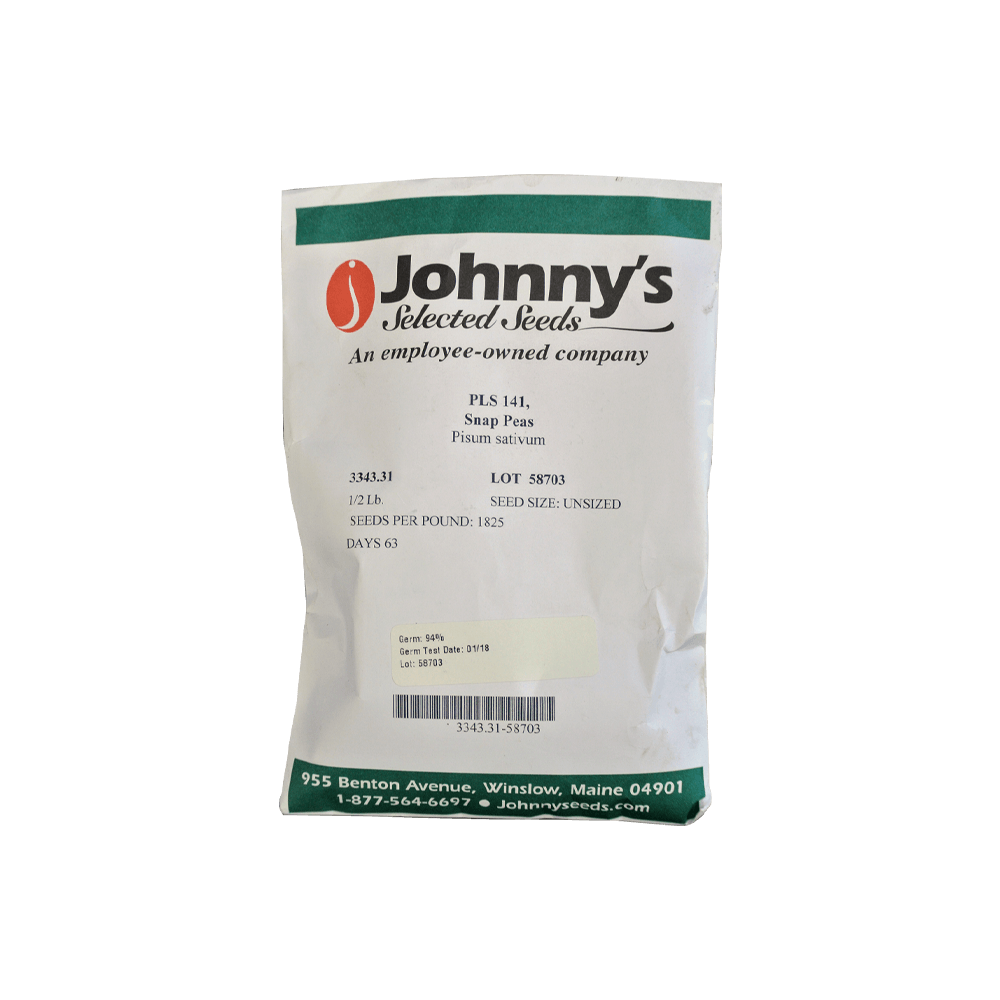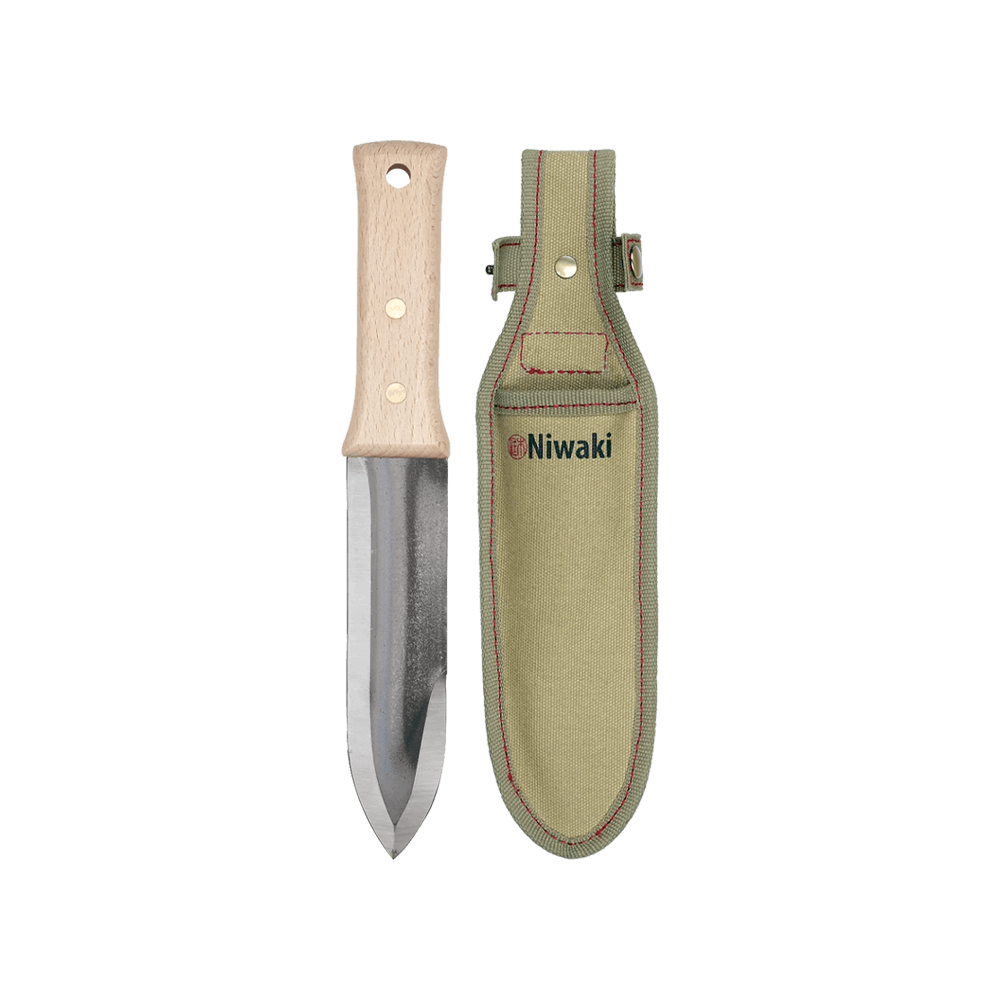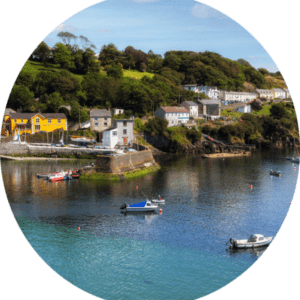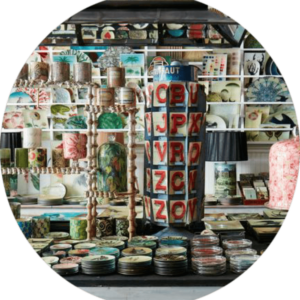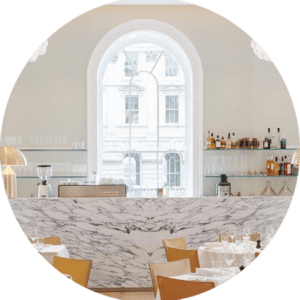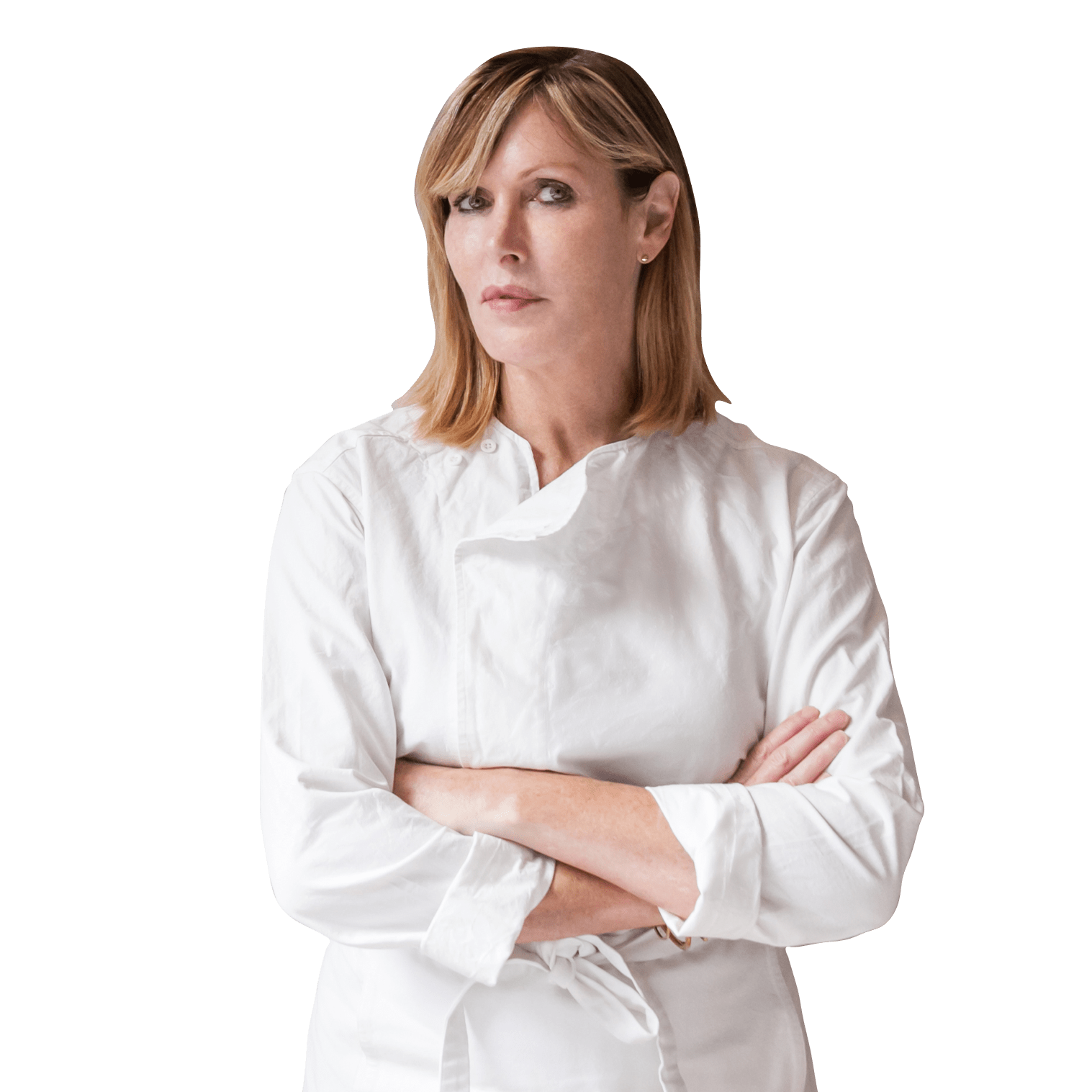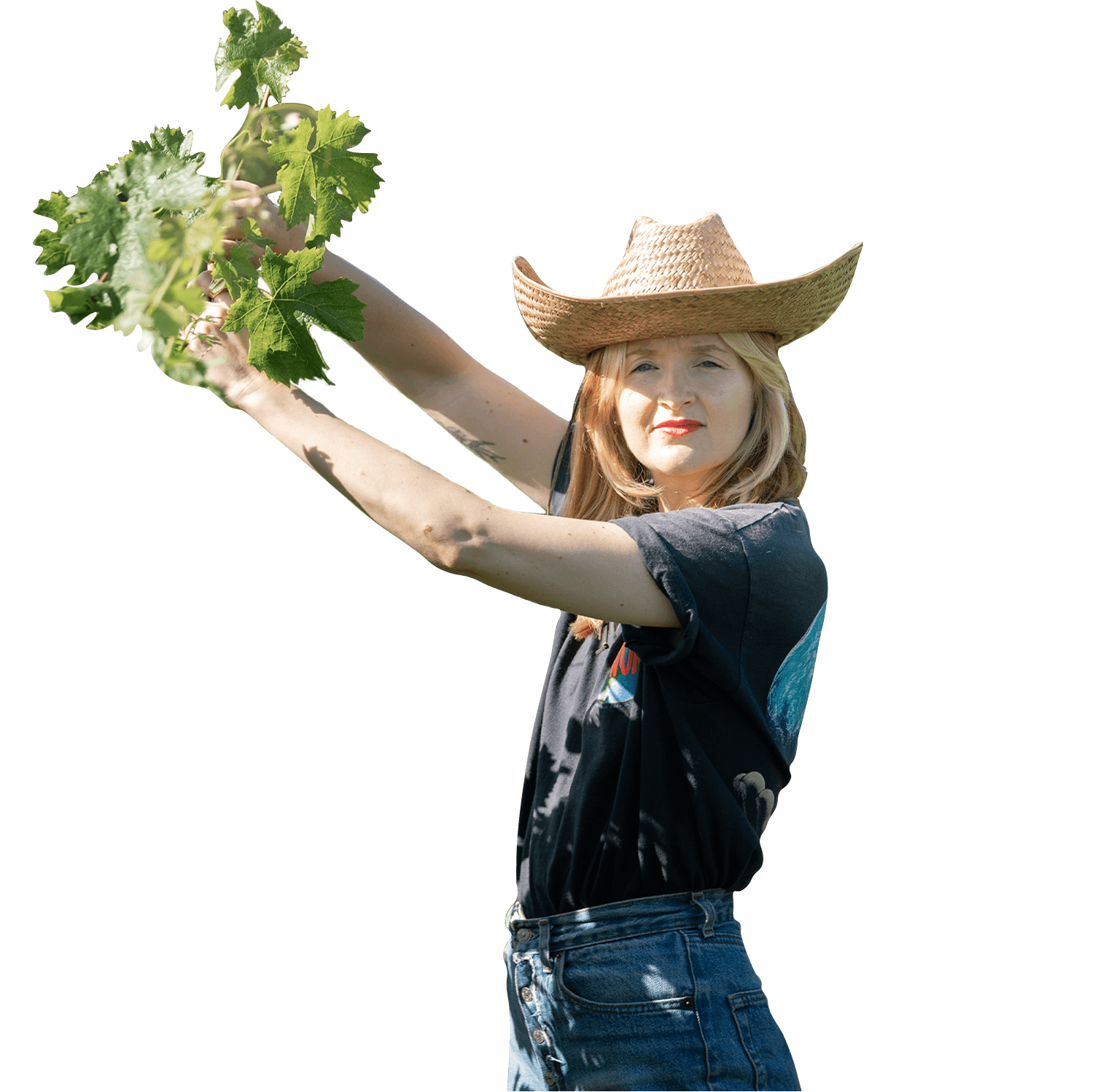Do you know why the Black Mountains are called the Black Mountains? No? Neither do I, and neither does Jane Scotter, organic and biodynamic grower based in, you guessed it, the foothills of the Black Mountains. She does, however, proffer that “what I’ve deduced from it is that the high rainfall means that the quality of green is very dark, and you can look out on those mountains and to the eye, they look almost black.” The success of Jane’s farm Fern Verrow is undeniable and her mission statement is clear – “Good things always shine through if they are cared for…using things that are well made, with craftsmanship and people’s hard work, and the love that they put into something is obvious.”
Jane Scotter, of Fern Verrow, lives in Herefordshire in the UK, in a parish called St. Margaret’s and has been based there for nearly 26 years growing beautiful produce, primarily for Skye Gyngell (Semaine Alumni) for her restaurant Spring in London. We were lucky enough to sit down (virtually) with Jane to learn about her farm and how she has ended up as one of the sole produce providers for one of the most successful restaurants in the capital. Going back to the very start, Jane tells me that prior to even the initial thoughts of Fern Verrow, she “had never grown anything before”.
The journey to where Jane is today started at Neal’s Yard Dairy, an iconic artisanal cheese retailer in London, where she was an original partner. “With (Neal’s Yard) I travelled the country quite a lot and I’ve always enjoyed the English countryside a great deal. We went around the UK and bought farmhouse cheese from small artisanal producers who were making beautiful cheese from unpasteurised milks. I think I had been in London for a long, long time and I used to come to this part of the world on holiday and one day, I just had that ‘eureka’ moment that I didn’t want to live in London any longer and so, very naively, I just upped sticks and moved and went and did it.” Jane’s London exodus occurred nearly thirty years ago, long before the frantic fleeing that happened in 2020 due to the Covid-19 pandemic. Stats read that in the summer of last year, nearly 700,000 London-dwellers fled for the countryside, far away from the city buzz. It is unsurprising that after months of four-walled frenzy, that our main craving was open-air and green spaces, it just so happens that Jane had a hunger for this back in the nineties.
When we picture an ideal and idyllic future, the rolling hills of the English countryside tend to make an appearance, but Herefordshire would not be first on the list. It wasn’t first on Jane’s list either, but the call of the Emerald Isle was “just a bit too far away from London and family and so on.” So, Herefordshire, it was. “It’s far enough away from London that it doesn’t become this commuter belt and there aren’t the really handy roads that take you from London to your destination in two and a half hours. There are lots of local people who are still doing what their families have done for generations. It’s very quiet, very peaceful. The air is good because we are quite high up. I have travelled a lot and lived in many places and this is definitely home. It’s very beautiful, very green. Very English, green countryside.”
The journey to choosing a location was not the only voyage that Jane and her family went on, the next step was setting up the farm they know today. “We worked really, really hard, it was nothing but trees here and we put in everything. I can remember these small metre-high apple trees going in and now they are sort of 30ft tall and producing close to a tonne of apples each. It’s quite something to watch the production and how things mature.” On top of that, it is “a three-year process to be biodynamic and two years to become organic. First, you’re in conversion. You can first be certified as organic and then it takes a further year to get certified biodynamic.” Jane admits that she sells to the privileged few, likening her produce to designer shoes, a luxury but not a necessity. “I think it’s probably quite naive to think that everybody could be a biodynamic grower.
There are so many demands to feed people, to feed the masses.” In the context of global food production, the ability to grow organically is, of course, not always a possibility and Jane concedes that it is “a very difficult, tricky topic” to contend with, but states that consumers and growers alike need to take the initiative to work towards solving the global problem. “I think that we can work towards that, but I think that everybody has to change their eating habits. In Europe and America, we are all very rich countries and so we should be stepping forwards and taking the opportunities to farm organically and I think that if we didn’t have this massive variation in climate change, it could be fine.” Furthermore, not forgetting that we, as consumers, don’t always understand where or how our food is grown. We can be ignorant about the process that takes our food from pasture to plate and how many hands were responsible for that delivery. “Food costs way more than people pay for it. Any farm worker is paid minimum wage.” It is this dichotomy that smallholders and non-industrial farmers like Jane are working to combat.
Biodynamics, in itself, Janes explains, is more of a philosophy than organics. “It’s described as a holistic approach to farming whereby we consider the influences and the forces from the unseen.” It is a fascinating and seemingly modern approach to a practice as traditional as farming, and yet it was actually developed in the early 1900s by Rudolph Steiner and is a method of growing that he devised into a yearly growth calendar. “The basic things that make you a biodynamic grower takes into consideration all the alignments of the sun, moon, and constellations which would benefit a part of that plant and we try to work on that plant of that part on that day.” Each day is allotted a task which is dependent on many an astrological impetus. The day we spoke, for example, was “a flower day, so today we are sewing and working with flowers. We are actually working with fruit too today because we have to, as it’s an emergency situation, but in my heart, I know that if I tend to the flowers of the fruit today then I will have good fruit.”
The process seems long-winded but is now second nature to Jane, as it lends a structure to an otherwise unpredictable line of work. The weather has always been a temperamental damsel and over the last decade, climate change has imposed even more challenges. “I am a complete slave to the weather forecast and it is what it is. It is extremely powerful, the weather, there is nothing we can do to change it. Modern people do forget.”
Since working alongside Skye at Spring, they have developed a harmonious symbiosis. Skye was searching for a relationship similar to that of Alice Waters (Chez Panisse) and her resident farmer Bob Cannard, and Jane was “looking for quite some time for the opportunity to not be driving to London every week to sell stuff and so it was a gift.” Their works dance in tandem as Skye says the menu is defined by what Jane grows. “She inspires me, and I inspire her although I’m not very fond of the word inspiration because it’s overused, but she does. When I’m going through my seed catalogues in January and choosing new varieties, I’m always thinking ‘what would Skye like’ and ‘what can I find this year that will be exciting and new’. It’s always with her in my mind. I know what she likes.” The admiration that chef and grower have for one another translates into pretty much perfect produce allowing for the very best seasonal selections, year in, year out.
Despite the intensity of the workload and the inevitable challenges that arise each year, Jane is still radiantly positive about the work that she is doing at Fern Verrow. This is palpably evident when she finishes by telling me, that despite it being her favourite time of day, “I don’t necessarily love to get up at 4am but I do do that time a lot, especially if we have irrigation to do, I get up and do it before the hot sun arrives. But walking through (the farm), although I think I’d like an extra hour to snooze, going through the fields and it’s really quiet and the light is beautiful, and everything looks very fresh.” Appreciation for, contemplation of, and connection with the land are what make Fern Verrow such a unique and enduring place.
A variety of digital downloads at your perusal.
Garden tools are an essential item for one of our favourite farmers, but what other essentials are needed to see her through the seasons?
Places to explore for both the great outdoors and the great indoors.
Jane has got all the horticultural reading recommendations you’ll need to get you in the garden.
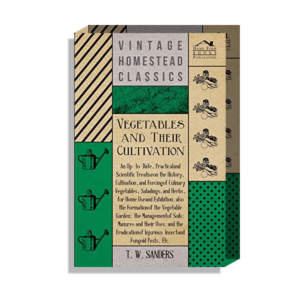


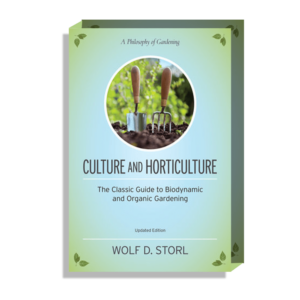
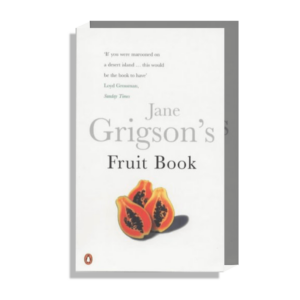
What does the word “taste” mean to you?
Jane:
Taste is so personal, and no-one has bad or good taste just their own ! Good taste to me is about beauty and quality of component, I like things to be done to the very best it can be from the ingredients used, the skill of manufacture or putting together, I love simplicity but I love extravagance too.
Do you have a life motto that you live by?
Jane:
Many ! I am sure I break all of them all the time. When I am stressed or worried I tell myself to be grateful for what I have and that keeps my feet on the ground and able to progress with a problem.
What was the last thing that made you laugh?
Jane:
Googlebox.
What are your favourite qualities in a human being?
Jane:
The obvious, kindness, loyalty of course but I do like someone that works hard and is driven in their work , especially creatively.
Who is your hero?
Jane:
I don’t believe in having heroes really. I admire people a lot usually people I know well Skye Gyngell is one as is the photographer and good friend Tessa Traeger. Both women are hugely creative and clever, generous and wise and have devoted their lives to doing their part in making the world a better place, by demonstrating their love of nature and the earth we live on. I admire Greta Thunberg and hope she achieves her goals without her own life being difficult. I think the Queen deserves admiration for devotion to her duty.
What is your biggest flaw?
Jane:
Impatience with people and I can be very abrupt.
What is your best quality?
Jane:
Tricky to say in public, as I am sure many would disagree, I think I am very loyal often to a fault. I love working too.
What would your last meal on earth be?
Jane:
So many things, Today I think it would have to be a beautiful crab salad made by Skye Gyngell, a piece( or two )of the very best Reblechon cheese served at room temperature, Sarah Johnson’s Kefir cake with a raspberry compot and a lick of crème fraiche. Lovely wine too.
What does success mean to you?
Jane:
Doing something well and with integrity and beauty, and to be satisfied with it just being that.
If you had the power to change anything you wanted in the world, what would you change?
Jane:
No wars conflict or climate challenges and for us all to live wonderful lives !

